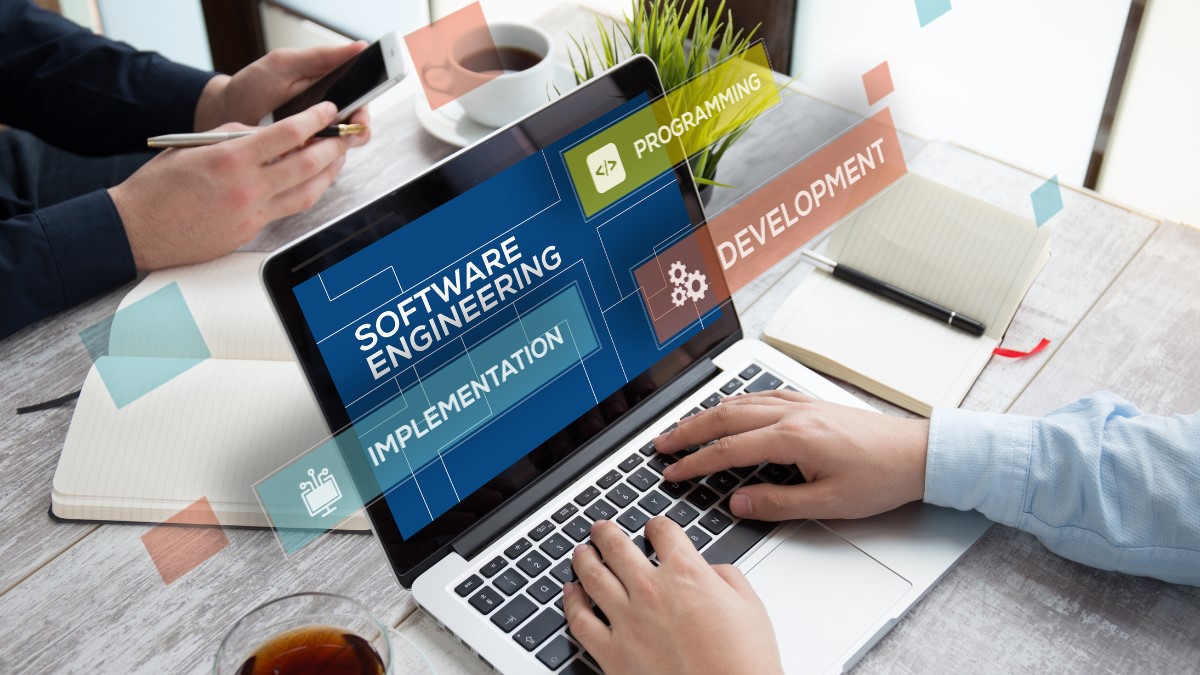
Software engineering leaders must capitalize on these trends to accelerate innovation with Artificial Intelligence (AI) and implement future-ready engineering practices.
O Gartner, Inc.. announces key strategic trends in Software Engineering for 2025 and beyond. These trends enable companies to accelerate innovation through AI-driven automation and adopt efficient, future-ready engineering practices.
“AI-enabled tools and technologies are fundamentally changing the way software is built and delivered,” says Joachim Herschmann, Vice President Analyst at Gartner. “Gartner’s Top Trends offer leaders a roadmap to leverage AI-driven automation, optimize talent strategies, and adopt sustainable, AI-native engineering practices. Software engineering leaders who act on these trends now will position their companies for long-term success.”
As companies develop their roadmap strategic for 2025 and beyond, they should prioritize investments that align with these six strategic trends in software engineering:
Native AI Software Engineering
AI-native software engineering is transforming the lifecycle of software development (Software Development Life Cycle – SDLC) by incorporating AI into every phase, from design to implementation. These practices allow AI to autonomously or semi-autonomously handle a significant portion of the software development lifecycle tasks.
Gartner predicts that by 2028, 90% of enterprise software engineers will use AI code assistants, compared to less than 14% in early 2024. The role of developers will shift from implementation to orchestration, focusing on troubleshooting and system design, and ensuring that AI tools deliver high-quality results. To be successful, teams must balance automation with human oversight, considering business criticality, risk, and workflow complexity.
Development of LLM-based applications and agents
Large Language Models (LLMs) are transforming software engineering by enabling applications to interact intelligently and autonomously, similar to human interactions. Gartner predicts that by 2027, at least 55% of software engineering teams will be actively building LLM-based features.
"Successfully building LLM-based applications and agents requires software engineering leaders to rethink their strategies," says Herschmann. "This means investing in training, experimenting with software outputs, and Generative Artificial Intelligence (GenAI) and implement strong protections to manage risks🇧🇷
GenAI Platform Engineering
GenAI Platform Engineering leverages established platform engineering approaches to help developers discover, integrate, and safely use GenAI resources in their applications. Gartner predicts that by 2027, 70% of companies with platform teams will include GenAI capabilities in their internal developer platforms.
By making AI capabilities easily discoverable through self-service developer portals, prioritizing features based on developer needs, and incorporating robust governance and security practices, leaders can ensure their teams build applications innovative solutions that comply with organizational standards.
Maximizing talent density
THE talent density – the concentration of highly skilled professionals on teams – has become a key differentiator for high-performance engineering companies. When supported by the right culture and technology strategies, talent-dense teams can operate with greater efficiency and adaptability, delivering greater value to the client.
"To remain competitive, companies must go beyond traditional hiring practices and focus on building teams with high talent density," says Herschmann. "Leaders must cultivate a culture of continuous learning and collaboration to attract and retain qualified professionals who can adapt and grow with evolving business needs."
Growth of GenAI Open Models and Ecosystem
GenAI's open frameworks are reshaping the enterprise AI landscape by offering greater flexibility, lower costs, and freedom from vendor lock-in.
Unlike proprietary models, open GenAI models allow organizations to customize, fine-tune, and deploy AI solutions tailored to their specific needs, whether on-premises or in the cloud. This shift is making advanced AI capabilities more accessible and cost-effective for a wider range of teams and use cases.
Gartner predicts that by 2028, 30% of total global enterprise spending on GenAI technologies will be on open GenAI models tailored to use cases. domain-specific.
Green software engineering
Green software engineering is the discipline of creating sustainable software that is both efficient and carbon-conscious. This approach shifts the mindset from treating software's environmental impact as an afterthought to incorporating environmentally friendly practices from the outset, at every stage, from planning to production.
"As companies build and buy more software as part of their digital initiatives, the increased carbon footprint of compute-intensive workloads may be at odds with their sustainability goals," says Herschmann. "Building intelligent applications with GenAI consumes a lot of energy, making green software engineering practices essential."
Topics like these and others aimed at CIOs (Chief Information Officers) and IT and business leaders, including insights and trends that shape the future, such as accelerating business transformation, modernizing applications, infrastructure and operations, will be highlighted in the CIO & IT Executive Conference 2025The event, which will be held from September 22nd to 24th in São Paulo, will showcase how leadership and innovation, combined with the adoption of cutting-edge technologies, play a fundamental role in corporate results. More information is available at: https://www.gartner.com/pt-br/conferences/la/cio-brazil
Gartner customers can read more at Top Strategic Trends in Software Engineering for 2025. Learn how to identify personalized focus areas for improvement using Gartner Software Engineering Leaders Effectiveness Diagnostic.
About the CIO & IT Executive Conference
Gartner analysts will provide additional analysis on insights and trends shaping the future of IT and business, including accelerating enterprise transformation, application modernization, infrastructure and operations, during the Gartner CIO & IT Executive Conference, which will be held September 22-24 in Sao Paulo and from October 6th to 8th in Dubai. Follow the conference news and updates on X using #GartnerCIO.
About Gartner for Software Engineering Leaders
O Gartner for Software Engineering Leaders helps leaders align with stakeholders, retain and optimize teams, and create innovative products that support and serve the entire enterprise, its partners, and customers. Additional information is available at https://www.gartner.com/en/software-engineering. Follow news and updates from Gartner for Software Engineering Leaders on X and LinkedIn.
About Gartner
O Gartner, Inc. delivers objective, actionable insights that drive smarter decisions and better performance for enterprises’ mission-critical priorities. To learn more, visit www.gartner.com.













